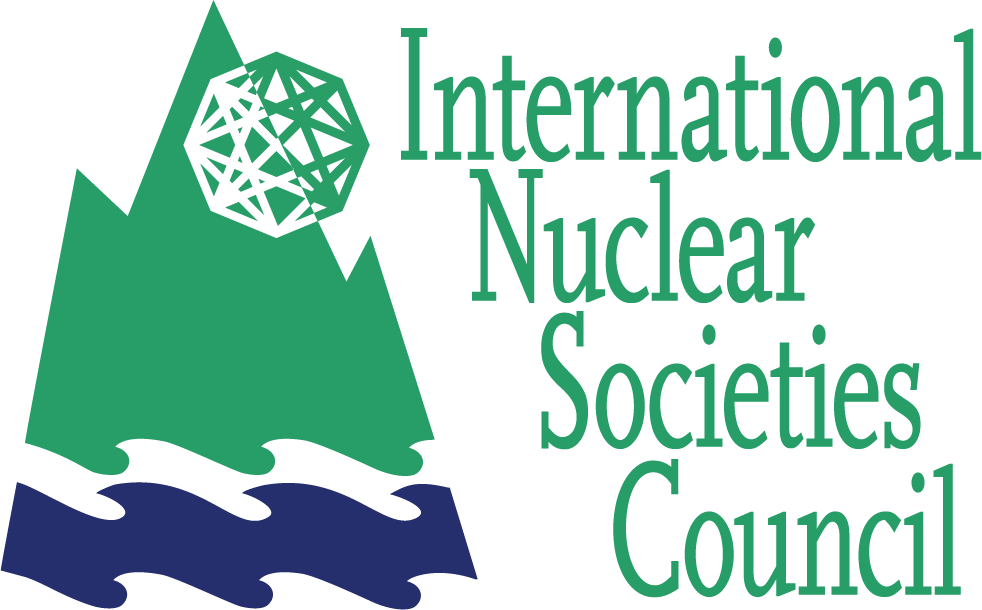50-YEAR VISION STUDY
Press Release
(April 4, 1996)
NUCLEAR TECHNOLOGY – A VISION OF HOPE FOR HUMANITY
Based on information from the World Energy Council and other international organizations, the International Nuclear Societies Council (INSC) has just issued a 3-years study titled “A Vision for the Second Fifty Years of Nuclear Energy”, which concludes that nuclear science and technology will become commonly accepted in the next century. Not only will nuclear technology be essential in providing energy, its use will continue to grow rapidly in health care, in the food industry and in the manufacturing industries.
The International Nuclear Societies Council is a world-wide organization representing 50,000 professional members from 37 nuclear societies. The study was completed by an international committee of the INSC made up of experts from Nuclear Societies of Europe, North America, the Far East and Latin America.
In fifty years, there will be twice as many people on the planet, with most of the growth in the developing countries. As all nations will strive to provide its citizens a quality of life closer to that of those who live in the industrialized countries, the world will need substantially more energy. Global energy demand will more than double over the next 50 years. Fossil fuels, which today make up 80% of the world’s energy supply, will likely be constrained by environmental concerns over global warming. Nevertheless, the large growth in the use of fossil fuels and in the emission of carbon dioxide is likely to continue. Even with major expansions in the use of hydroelectric power and other renewable energies, there will still be a shortfall, and the only other energy option available to fill the gap is nuclear energy. With technology available today, there will be ample uranium and thorium for nuclear energy to fill such energy demand.
The use of nuclear science and technology in the health care field will continue to grow as society demands more efficient diagnosis and treatment, at lower costs. Nuclear science will be used more and more in imaging to determine the source and extent of medical problems. Radiation sterilization of medical supplies will become universal.
Much of the world’s malnutrition can be attributed to loss of existing food by insect infestation, bacterial decay and spoilage. Irradiation is a proven method of solving these problems. In fifty years, irradiation of many foods will likely be considered as necessary and desirable to the consumer as is pasteurization of milk today.
Of all these applications of nuclear technology, the supply of energy is central, and will require the largest investments in financial and human resources. The INSC study therefore examines the strategies that will be needed to achieve the vision. It describes the evolution underway in the design, construction and operation of current types of nuclear power plants. Continuing cost reductions will ensure that nuclear power remains competitive with the fossil fuels, particularly coal and low-cost pipeline natural gas. A Henry Ford type of approach to the supply of new nuclear power plants will be needed to bring the costs down substantially.
By the middle of the next century, the demand for energy, combined with concerns over global warming, may make recycling an economically attractive option. Fast reactors offer the promise of breeding – recycling nuclear fuel to convert essentially all of the available uranium into energy. This is the strategic importance of the fast reactor. Ultimately, the full recycle of uranium with plutonium in fast reactors can offer the assurance of sustainable and economic nuclear fuel supply for centuries to come.
The study makes clear that nuclear science and technology can and will make significant contributions to the sustainable development and well-being of all humankind.
The INSC Committee which prepared the study was chaired by Masao Hori of the Atomic Energy Society of Japan. The study was edited by Stanley R. Hatcher of the Canadian Nuclear Society, and published by the American Nuclear Society.
For further information, contact either the INSC:
Mr. Jorge Spitalnik
Secretary INSC
c/o Latin American Section of ANS
Rua Mena Barreto, 42 / 5th Floor
Rio de Janeiro 22271-100
BRAZIL
Phone: (55) 21 536-2746
Fax: (55) 21 537-9000
e-mail: jspitalnik@ax.ibase.org.br Mr. Yuzo Endo
INSC Secretariat
c/o Atomic Energy of Japan
1-1-13 Shimbashi, Minato-ku
Tokyo 105
JAPAN
Phone: (81) 3 3508 1261
Fax: (81) 3 3581 6128
e-mail: EVH80637@pcvan.or.jp
or the publisher:
or the Member Societies of INSC:
Publication Department
American Nuclear Society
555 North Kensington Avenue
La Grange Park, IL 60525-5592 USA
Phone: (1) 708 579-8200
Fax: (1) 708 579-8295
e-mail: mgardner@ans.org
AMERICAN NUCLEAR SOCIETY (ANS)
ASOCIACIÓN ARGENTINA DE TECNOLOGIA NUCLEAR (AATN)
ASSOCIAÇÃO BRASILEIRA DE ENERGIA NUCLEAR (ABEN)
ATOMIC ENERGY SOCIETY OF JAPAN (AESJ)
AUSTRALIAN NUCLEAR ASSOCIATION (ANA)
CANADIAN NUCLEAR SOCIETY (CNS)
EUROPEAN NUCLEAR SOCIETY (ENS)
Austrian Nuclear Society, Belgian Nuclear Society, British Nuclear Energy Society, Bulgarian Nuclear Society, Coordinated Committee of Czech and Slovak Nuclear Societies, Croatian Nuclear Society, Danish Nuclear Society, ETAN Nuclear Division, Finnish Nuclear Society, French Section of ANS, French Nuclear Society, German Nuclear Society, Hellenic Nuclear Society, Hungarian Nuclear Society, The Institution of Nuclear Engineers, Italian Nuclear Society, Italian Local Section of ANS, Netherlands Nuclear Society, Nuclear Society of Russia, Nuclear Society of Slovenia, Polish Nuclear Society, Romanian Nuclear Energy Professional Organization, Spanish Nuclear Society, Swedish Nuclear Society, Swiss Nuclear Society.
ISRAEL NUCLEAR SOCIETY (INS)
KOREAN NUCLEAR SOCIETY (KNS)
LATIN AMERICAN SECTION (LAS)
NUCLEAR ENERGY SOCIETY TAIPEI, CHINA (NEST)
PAKISTAN NUCLEAR SOCIETY (PNS)
SOCIEDAD NUCLEAR MEXICANA (SNM)
